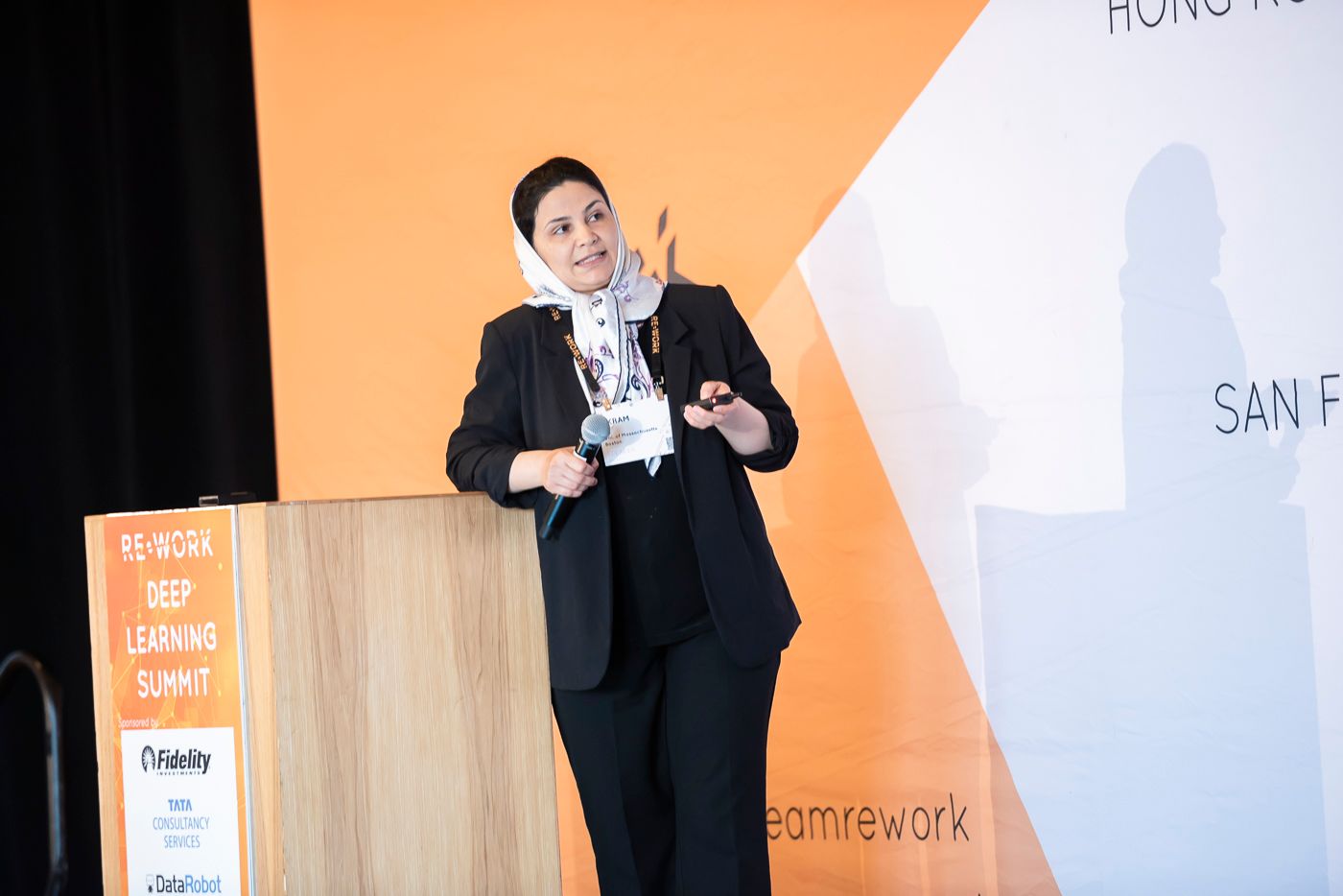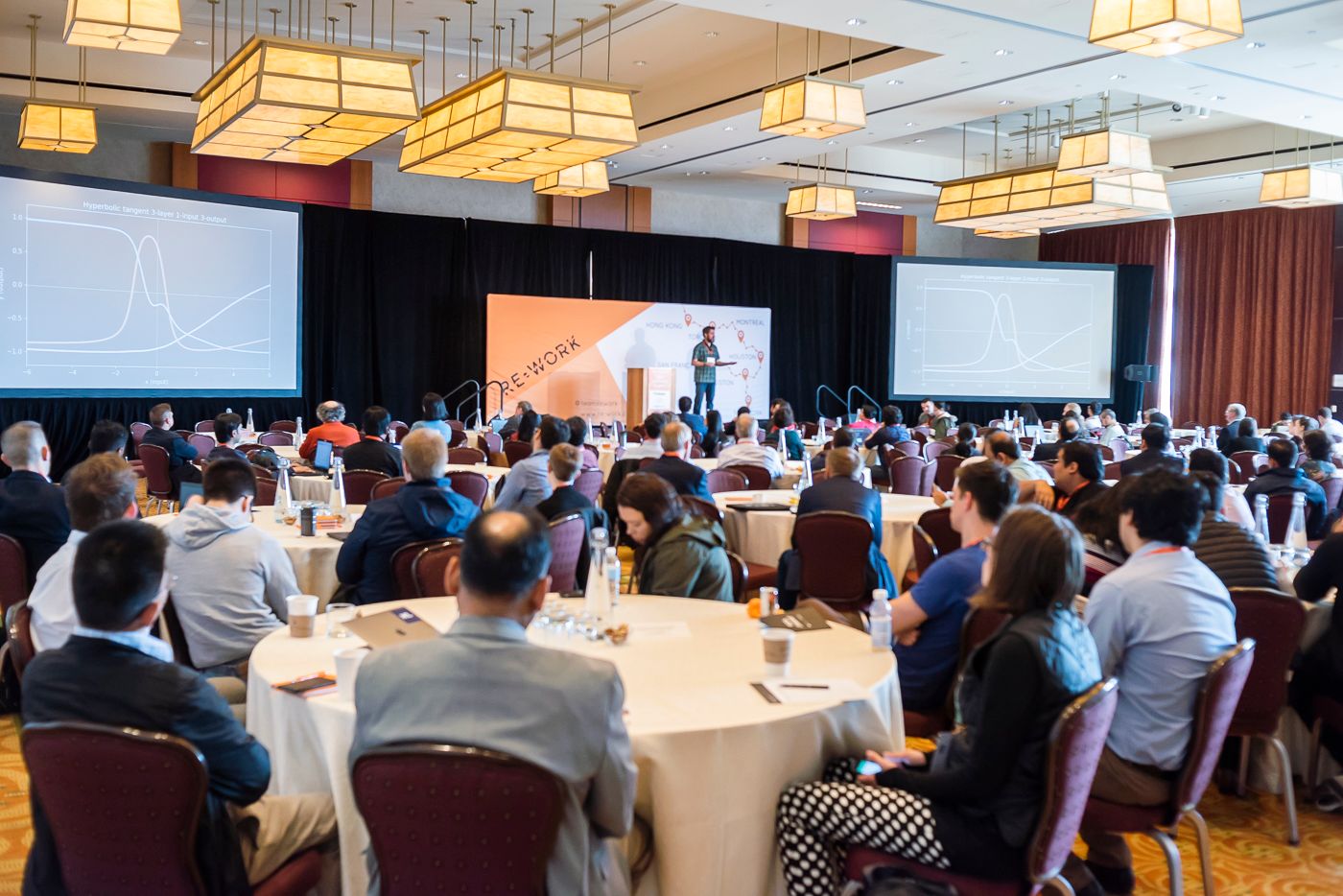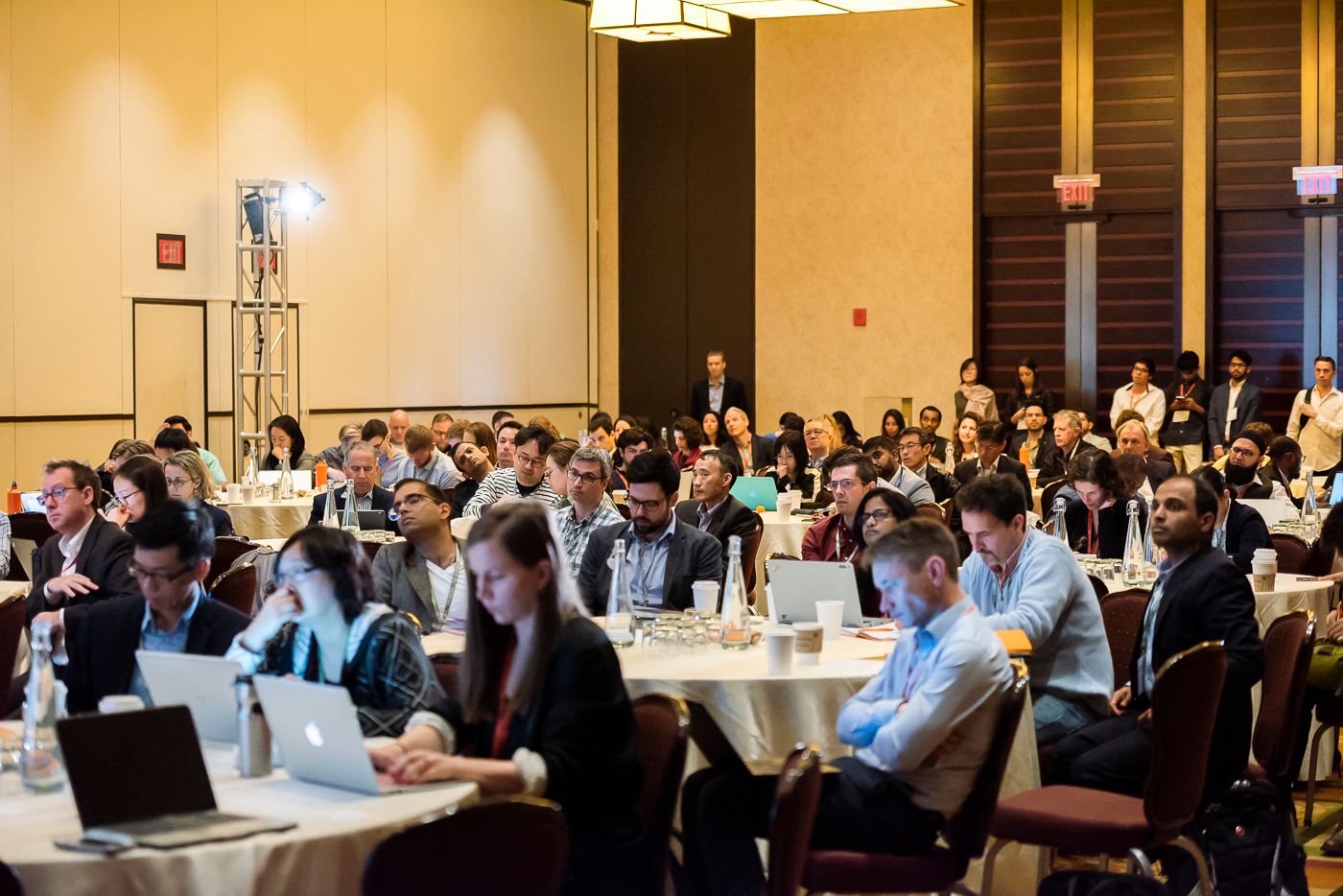After a brilliant first day in Boston, attendees were early to arrive for breakfast and coffee in anticipation of another great day of talks. Having fuelled up for the morning, attendees took their seats on both tracks for the opening remarks of day two.
Comperes Andre and Amir recapped discussions from day one before setting the scene for the day ahead with an overview of talks to come. Kicking off day two, Jay Baxter, Senior Machine Learning Engineer from Twitter Cortex, discussed the application of deep learning models in his work. Jay suggested that the main benefit of machine learning lies in the development of new user recommendations. In a very honest presentation, Jay went on to discuss the difficulty in evaluation of both online/offline models in regard to A/B testing:
“The goal is not to just guess, we are explicitly trying to recommend tweets with the highest possible user score. We also have to deal with bias in our ranking systems, meaning that we have to train on random data each time. We are currently looking at building a matrix for multiphase recommendation systems to better manage the amount of data we have.”
The healthcare track was also underway with Mark Homer, Head of Healthcare AI at Fidelity And Ron Xu of Aetna discussing the use of deep learning in understanding human behaviour. Ron discussed at length the intricacies of Aetna's prediction model, with the main goal being foresight for patient care and disease prevention
"Lack of exercise can lead to various diseases, therefore, it is important to have a good understanding of patients exercise habits and their potential contraction risk. Through this we can look at care options."

Mirada Medical chief scientist, Mark Gooding further reinforced the need for increased data accuracy, especially when creating a healthcare product which needs FDA approval. Whilst Mirada are focussed on the reduction of harm caused through invasive therapy techniques, Mark was clear in suggesting that Mirada avoid making claims that this product will cure or aid in the reduction of disease:
"We had to create a value proposition for the product, we are not trying to make claims on patient health outcome, but instead we have made a tool which we believe will aid clinical decision making."
Following Mark’s talk came Alex Ermolaev, Director of AI at Change Healthcare. In a similar vein to Mark, Alex discussed the latest AI techniques for extracting insights from electronic patient records. Alex went on to suggest that the amount of rich data available from each hospital, could, when run through Change Healthcare's model, aid dramatic improvement in diagnostics and treatment of patients. Challenges faced by Change Healthcare include messy and misspelled data and a considerable lack of trust from hospitals when it comes to technical and AI based companies which deal with data.
Whilst RE•WORK are recognised for promoting the work of women in STEM fields, in recent years, we have also aimed to highlight the work of ‘rising stars’ in the AI space. The afternoon of day two facilitated exactly that in the Deep Dive sessions, with presentations on NLP, genomics, GANs and more from various speakers aged between thirteen and eighteen. We have included some of our favourite quotes from this session below:
“Deep Learning and Genetics are a great match. Our main goal is to be able to edit the genome, which would in turn make it possible to edit ourselves and therefore cure diseases at an earlier stage." Gracelyn Shi, Innovator, The Knowledge Society
“Medical images are much like finding waldo, if there is something that we are not necessarily looking for, we would be unable to easily find it. Similarly, supervised learning models will only be able to find the diseases it is specifically looking for.” Liam Hinzman, Innovator, The Knowledge Society
“Imagine being able to learn a skill in a matter of minutes and communicating via thoughts! How do we do this? Brain computer interfaces! These devices work simply through measuring our brain waves which can create a plethora of amazing possibilities." Albert Lai, The Knowledge Society

Back on the healthcare track, Hye Sun Na of GE Healthcare discussed the vital nature of continuous quality control in healthcare due to large data sets and the number of models used per day. Hye went on to suggest that any inefficiency in GE’s processes can be significantly decreased through the use of DL algorithms and that when going forward, healthcare professionals need to
“Focus on a problem and not on a technology.”
Hye stated that a decrease in required personnel and the necessary effort for peak performance as the main benefits of DL implementation, resulting in a greater standard of patient care and diagnosis accuracy. That said, Hye suggested that a shortage of qualified developers can cause productivity issues. The solution? Automation! The automation of basic tasks can not only help with the smaller and more repetitive tasks, but also free up time for clinicians to advance treatment options.
Meanwhile, in the penultimate presentation of the day, Shuo Zhang of Bose covered the role of NLP in music technology on the Deep Learning Stage, suggesting that through the use of machine learning based NLP, the rich complexity of human languages can be understood at a greater level. Shuo went on to describe the effect of NLP on the creation of music information retrieval and audio AI and therefore greater tailoring for users. Shuo concluded his talk by identifying the emerging trends and interesting challenges facing Bose in the near future:
"One problem is that we can not share music with research developers due to copyright, therefore we have to use commercially available music which sometimes have lower frame rates."
With plenty of knowledge and valuable connections made, attendees departed the Deep Learning Summit and Deep Learning in Healthcare summit. We would like to thank all speakers, sponsors, exhibitors and attendees for joining us to discover the latest AI tools & techniques and their application across multiple industries.
Are you interested in joining us at a future RE•WORK Summit? See a full calendar listing of our upcoming events here.
